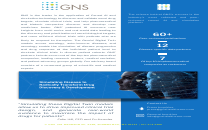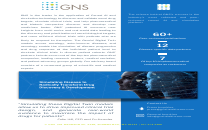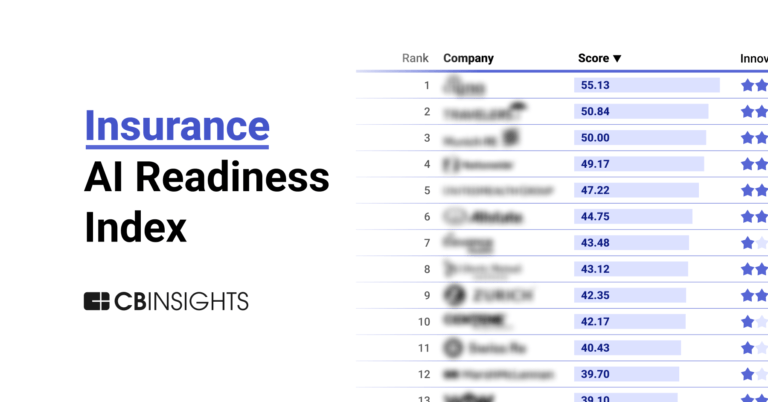
Aitia
Founded Year
2000Stage
Corporate Minority | AliveTotal Raised
$65.25MMosaic Score The Mosaic Score is an algorithm that measures the overall financial health and market potential of private companies.
+36 points in the past 30 days
About Aitia
Aitia operates as a biotechnology company. It utilizes causal artificial intelligence (AI), multi-omic patient data, and Gemini Digital Twins to study the biological mechanisms of diseases in the oncology and neurodegenerative disease sectors. The company aims to create computational representations of diseases to assist in the development of therapies. It was founded in 2000 and is based in Somerville, Massachusetts.
Loading...
Aitia's Product Videos


ESPs containing Aitia
The ESP matrix leverages data and analyst insight to identify and rank leading companies in a given technology landscape.
The digital twins for life sciences R&D market creates virtual replicas of biological systems to accelerate therapeutic development. Companies leverage AI and computational modeling to simulate disease mechanisms, predict drug responses, and optimize clinical trials. These platforms enable companies to identify drug targets, assess therapeutic efficacy, and streamline R&D while reducing physical e…
Aitia named as Outperformer among 7 other companies, including Siemens, Certara, and Dassault Systemes.
Aitia's Products & Differentiators
Gemini Digital Twin
Gemini Digital Twins enable the accurate simulation of gene and protein knockdowns at the individual patient level across “digital twins cohorts” to discover and validate novel drug targets. Gemini Digital Twins also enable the simulation of disease progression and drug response at the individual patient level across “digital twins cohorts” to simulate clinical trials to better select patients, and rapidly generate comparative effectiveness evidence.
Loading...
Research containing Aitia
Get data-driven expert analysis from the CB Insights Intelligence Unit.
CB Insights Intelligence Analysts have mentioned Aitia in 3 CB Insights research briefs, most recently on Mar 11, 2025.

Aug 21, 2024
The clinical trials tech market mapExpert Collections containing Aitia
Expert Collections are analyst-curated lists that highlight the companies you need to know in the most important technology spaces.
Aitia is included in 7 Expert Collections, including Digital Health 50.
Digital Health 50
150 items
The most promising digital health startups transforming the healthcare industry
Digital Health
11,422 items
The digital health collection includes vendors developing software, platforms, sensor & robotic hardware, health data infrastructure, and tech-enabled services in healthcare. The list excludes pureplay pharma/biopharma, sequencing instruments, gene editing, and assistive tech.
Precision Medicine Tech Market Map
160 items
This CB Insights Tech Market Map highlights 160 precision medicine companies that are addressing 9 distinct technology priorities that pharmaceutical companies and healthcare providers face.
Drug Discovery Tech Market Map
221 items
This CB Insights Tech Market Map highlights 220 drug discovery companies that are addressing 12 distinct technology priorities that pharmaceutical companies face.
Oncology Tech
568 items
This collection includes companies applying technology to cancer care, diagnosis, and treatment. Examples include vendors offering cancer detection and diagnosis, oncology clinical decision support, real-world data, and AI oncology drug discovery.
Artificial Intelligence
10,195 items
Latest Aitia News
Jul 14, 2025
Created by Malana VanTyler Artificial intelligence (AI) has made its way into the health sector. The technology plays a role in diagnosis, treatment, and patient care. Nevertheless, its real-world application in the industry remains a point of scrutiny. As the healthcare systems worldwide bear the brunt of rising costs, long diagnostic delays, and fragmented processes, one question looms. Can AI improve patient outcomes while reducing costs? The answer to that question may be closer than you think. Key Areas of Impact Artificial intelligence is making measurable improvements in the healthcare industry. For instance, AI's ability to analyze vast amounts of data quickly helps providers work more efficiently. As a result, they can reduce time spent on administrative tasks. However, this set of technologies goes far beyond streamlining routine office work. The key areas highlighted below demonstrate how AI is impacting almost every aspect of care delivery. Smarter Diagnostics and Imaging One of AI's fastest-growing applications is in imaging analysis. It enables more accurate analysis of X-rays, MRIs, and CT scans. For example, the advanced algorithms can highlight early-stage tumors or subtle anomalies. This enhanced detection can lead to prompt intervention for diseases such as cancer. Predictive Analytics and Risk Management AI systems analyze data to help determine patient risk and develop effective treatment plans. It assesses numerous variables, including age, genetics, and lifestyle habits. By doing so, the technology estimates a patient's risk of developing conditions such as heart disease or diabetes. AI's ability to flag high-risk individuals enables doctors to adjust treatments or suggest lifestyle changes to prevent serious complications. Operational Efficiency and Administration Hospital administrators wrestle with mountains of paperwork, billing codes, and insurance claims. AI-powered tools can automate many of these tasks. These high-tech solutions handle activities from scanning patient records to managing appointment scheduling. The reduction of administrative burdens allows clinical staff to focus on patient interaction. Personalized Treatment and Drug Discovery AI-driven tech shapes how treatments are created and tailored. Algorithms recommend effective therapies for individual patients by analyzing genetic data, treatment histories, and population trends. In pharmaceutical research, AI accelerates drug discovery by identifying promising molecules and predicting their interactions. Real-World Case Studies Numerous startups and established companies are integrating AI into Healthcare. Two examples include the following: GNS Healthcare: Uses causal machine learning to uncover biological mechanisms for personalized treatment recommendations. Its impact is in predicting patient responses to new drugs and aids in clinical trial design. Stability AI: The company develops open foundation models to drive innovation in radiology. The aim is to improve diagnostic accuracy and efficiency. Additionally, thought leaders and influencers are incorporating AI and advanced analytics in their approach to health. For example, entrepreneur Gary Brecka applies data-rich, insight-based approaches to wellness. Challenges to Address AI offers promising solutions in healthcare. However, concerns exist regarding data privacy, infrastructure compatibility, and ethical oversight. Patients and clinicians need to trust the AI tools. Building this confidence depends on addressing these issues to determine the long-term use of AI in medical settings. Ensuring Data Privacy and Security AI systems rely on massive amounts of personal health data. Protecting patient privacy is a concern. Robust encryption, secure access protocols, and transparent data governance are crucial for meeting ethical and legal standards. Integrating AI with Existing Infrastructure Healthcare systems often rely on legacy systems. However, hospitals, clinics, and insurance providers face battles in integrating new AI platforms. The main obstacles are investing in interoperability and staff training. Additionally, careful validation is another concern. In other words, there must be reliable, safe predictions in clinical settings. Trust and Ethical Oversight Full acceptance of AI among clinicians and patients centers on trust. Trustworthiness involves validating algorithms, documenting decision-making pathways, and establishing accountability in the event of errors. Ethical frameworks must guide the deployment of AI and the interpretation of its conclusions. The Road Ahead AI holds promise for shifting healthcare toward prevention and continuous monitoring. For instance, wearable devices can stream real-time health data to cloud-based models. This tech creates alerts when key indicators change. Collaboration is also essential. Uniting AI developers, data scientists, and entrepreneurs is a game-changer. This teamwork could result in solutions that are practical, safe, and clinically relevant. As AI tools mature, these models may enhance short-term care and long-term wellness. A Balanced View of AI in Health AI offers a robust set of tools to tackle high costs, diagnostic bottlenecks, and administrative strain in healthcare. However, it isn't a silver bullet. Success depends on maintaining data privacy, integrating with existing systems, and earning the trust of clinicians and patients. Continued innovation, combined with responsible use, can lead to more efficient and personalized healthcare systems. This article is for informational purposes only and does not substitute for professional medical advice. If you are seeking medical advice, diagnosis or treatment, please consult a medical professional or healthcare provider.
Aitia Frequently Asked Questions (FAQ)
When was Aitia founded?
Aitia was founded in 2000.
Where is Aitia's headquarters?
Aitia's headquarters is located at 561 Windsor Street, Somerville.
What is Aitia's latest funding round?
Aitia's latest funding round is Corporate Minority.
How much did Aitia raise?
Aitia raised a total of $65.25M.
Who are the investors of Aitia?
Investors of Aitia include Charles River Laboratories, Paycheck Protection Program, Merck Global Health Innovation Fund, Alexandria Venture Investments, Celgene and 13 more.
Who are Aitia's competitors?
Competitors of Aitia include Nuritas, Healx, InSilicoTrials, Atomwise, Insilico Medicine and 7 more.
What products does Aitia offer?
Aitia's products include Gemini Digital Twin and 1 more.
Who are Aitia's customers?
Customers of Aitia include Pfizer, Mercks, AbbVie, Sanofi and Servier.
Loading...
Compare Aitia to Competitors

Atomwise develops machine learning-based discovery engines and uses artificial intelligence (AI)-based neural networks to help discover new medicines. It predicts drug candidates for pharmaceutical companies, start-ups, and research institutions and designs drugs using computational drug design. It was formerly known as Chematria. The company was founded in 2012 and is based in San Francisco, California.

Standigm specializes in AI-driven drug discovery within the pharmaceutical industry. The company provides services, including target identification, lead generation, and optimization, as well as AI SaaS solutions for drug development. Standigm primarily serves sectors engaged in pharmaceutical research and drug development. It was founded in 2015 and is based in Seoul, South Korea.
Aria Pharmaceuticals operates as a preclinical-stage pharmaceutical company that focuses on the discovery and development of novel, small-molecule therapies in the pharmaceutical industry. The company's main service is the development of new treatments for complex and hard-to-treat diseases using its proprietary symphony platform, which combines biomedical data and artificial intelligence to increase the success rates of drug discovery. Aria Pharmaceuticals primarily serves the healthcare sector, specifically targeting areas where new therapies are most needed. It was founded in 2014 and is based in Palo Alto, California.

Healx focused on drug discovery in the healthcare sector. The company specializes in developing treatments for rare diseases by leveraging artificial intelligence and drug development expertise. Healx was formerly known as Healx3. It was founded in 2014 and is based in Cambridge, United Kingdom.

Insitro is a data-driven drug discovery and development company that utilizes machine learning and high-throughput biology. The company has a machine learning platform that combines in vitro cellular data with human clinical data to identify insights and interventions in metabolism, oncology, and neuroscience. Insitro's approach uses technology to model disease states and design therapeutic interventions. It was founded in 2018 and is based in South San Francisco, California.
SOM Biotech operates as a clinical-stage drug discovery and development company that focuses on the treatment of rare Central Nervous System disorders. The company utilizes an artificial intelligence platform to discover and develop drugs, with emphasis on orphan diseases and repurposing existing drugs for new therapeutic indications. SOM Biotech's lead product has completed Phase 2b trials for Huntington's Disease. It was founded in 2009 and is based in Barcelona, Spain.
Loading...


